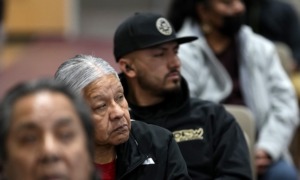The Black Alliance for Educational Options (BAEO)
Available at http://www.baeo.org/wp-content/uploads/sites/13/mottSummary.pdf
Black parents have a deep understanding of the need for high-quality after-school programs and strong hopes that such programs will improve their children’s life outcomes, according to this study, funded by the Charles Steward Mott Foundation.
In order to determine which factors influence black parents’ decisions to enroll their children in after-school programs, the Black Alliance for Educational Options conducted a yearlong study that compiled data from surveys and 46 focus groups in four cities: Detroit, Milwaukee, Washington and Philadelphia.
The after-school programs included Boys & Girls Clubs, YMCAs, YWCAs, the Police Athletic League, Beacon House in Washington, Education Works in Philadelphia and Think Detroit. Also included were community-based organizations and programs that were gender-specific or focused on cultural heritage.
Participants were working-class black parents with annual family incomes of less than $50,000 and at least one child in grades one through 12 enrolled in a program in 2006 or part of 2007. BAEO defined “parents” as mothers (70 percent of respondents), fathers (12 percent), grandparents (11 percent), aunts and uncles (5 percent), and other guardians (2 percent). Nearly half of the 407 parents worked, and nearly half were single.
Each parent completed a two-page questionnaire and participated in an hour-long focus group.
Principal investigators Gerard Robinson, president of the BAEO and a senior fellow at the Institute for the Transformation of Learning at Marquette University, and Leslie Fenwick, an expert with nearly 20 years experience in education and educational policy, found that black parents:
• Believe the purposes of after-school programs are to improve their children’s academic motivation with tutoring and homework assistance; provide stimulating activities in a safe, positive environment while their parents work; and expose children to cultural, leadership and decision-making opportunities.
• Identify the desirable outcomes for children enrolled in such programs as better grades, a better attitude, greater maturity and broader exposure, especially to male role models.
• Say that after-school programs that lack consistency, parental involvement, adult supervision and structured activities are weak. Staff members who show little interest in their jobs, and the presence of unruly children, also weaken programs in the parents’ eyes.
• Believe that strong after-school programs have a well-trained staff and strong leadership and administration, and they balance academics and fun and communicate effectively with parents.
The study also lists activities parents said their children liked (field trips, team sports and academics) and disliked (academics and being told what to do).
The investigators identified four overarching themes that surfaced repeatedly in the focus groups:
• An unwelcoming atmosphere and a lack of proximity, transportation, affordability and parental literacy all create barriers to program access.
• Fliers, word-of-mouth and conversations with school personnel and their own children are the most likely ways parents learn about the availability of after-school programs.
• Parents are aware that program quality matters and they know what high-quality programming looks like.
• Having regular opportunities to share ideas and experiences regarding such programs is important to parents.
Contact: Gerard Robinson, gerard@baeo.org, (202) 429-2236.






























